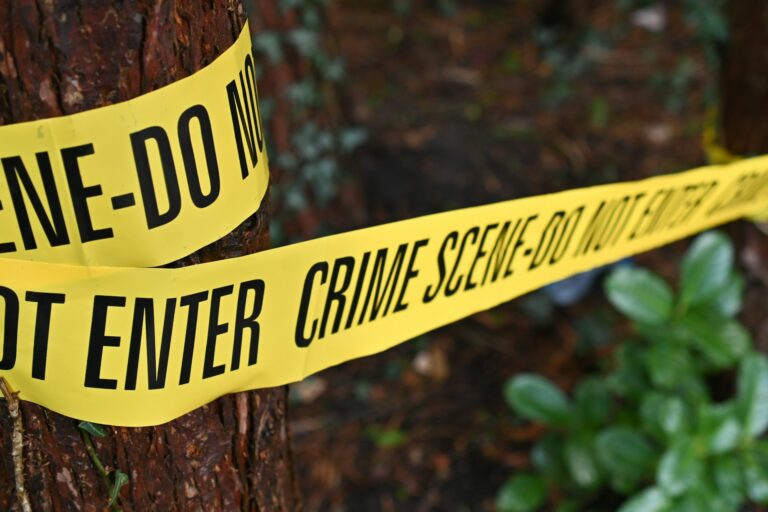Bloodborne pathogens are viruses or bacteria that are carried in the blood and can cause severe health issues. When a crime scene involves blood, it poses serious risks to anyone handling the cleanup. Understanding these risks is important, as it can prevent the spread of diseases.
Crime scene cleanup is more than just tidying up a space. It involves dealing with hazardous materials that can cause infections. Blood can carry harmful pathogens like Hepatitis B, Hepatitis C, and HIV. These can easily be transmitted through contact with contaminated blood or bodily fluids.
In Athens, Georgia, where Sentry Restoration offers crime scene cleaning services, the safety and health of residents are paramount. Professional biohazard technicians are trained to handle these dangers safely. Attempting to clean a crime scene without proper knowledge or equipment can be extremely dangerous. Knowing what bloodborne pathogens are and how they can affect health is essential to realizing the importance of hiring experts for crime scene cleanup.
What Exactly Are Bloodborne Pathogens
Bloodborne pathogens are harmful microorganisms present in human blood that can cause diseases in humans. These pathogens include viruses, bacteria, and parasites. They are easily transferred through blood and other body fluids, making them a major concern during crime scene cleanup. A person can become infected through direct contact with infected blood or bodily fluids. Even a small cut or abrasion can be a point of entry for these pathogens.
The most common bloodborne pathogens are Hepatitis B, Hepatitis C, and HIV. Each of these carries serious health risks and can have long-lasting effects. Understanding what bloodborne pathogens are and how they spread is crucial for anyone involved in cleaning up after a violent crime or an accident. Proper precautions and safety measures are needed to minimize exposure and protect health.
Bloodborne Pathogen Risks
Hepatitis B
Hepatitis B is a serious liver infection caused by the Hepatitis B virus (HBV). It can cause chronic liver disease, liver cancer, and death. The virus spreads through contact with infected body fluids, such as blood. Crime scene cleaners are at particular risk if they come into contact with blood from someone infected with HBV. Using gloves and other protective gear is essential to prevent infection.
Hepatitis C
Hepatitis C is a liver disease caused by the Hepatitis C virus (HCV). It can lead to long-term liver problems, including cirrhosis and liver cancer. Hepatitis C is mainly spread through blood-to-blood contact. This means that crime scene cleaners handling blood or blood-contaminated materials can be exposed to HCV if they do not take proper precautions. Just like with Hepatitis B, the use of protective equipment is critical.
HIV
HIV, or Human Immunodeficiency Virus, attacks the immune system and can lead to AIDS (Acquired Immunodeficiency Syndrome). HIV is spread through contact with infected blood, semen, vaginal fluids, and breast milk. Crime scene cleaners are at risk if they come into contact with blood from an HIV-positive individual. Wearing protective gloves, masks, and other safety gear helps reduce the risk of HIV transmission during crime scene cleanup.
Understanding these bloodborne pathogen risks highlights the importance of professional crime scene cleaning services. Proper training, safety measures, and equipment help protect both the technicians and the general public from these serious health threats.
How Crime Scene and Biohazard Technicians Help
Crime scene and biohazard technicians play an essential role in safely cleaning up after traumatic events. Their training and expertise ensure that crime scenes are properly sanitized, reducing the risk of spreading bloodborne pathogens. These professionals use specialized equipment and follow strict protocols to handle biohazard materials, making sure every area is thoroughly cleaned and disinfected.
Technicians wear personal protective equipment (PPE) like gloves, masks, and suits to shield themselves from direct contact with harmful substances. They also use industrial-grade cleaning agents that are effective in killing pathogens. This level of precaution is necessary because even the smallest contamination can lead to serious health risks.
By following detailed procedures, these professionals make crime scenes safe for reoccupation. They dispose of contaminated materials according to legal regulations, ensuring environmental safety. Crime scene cleaning services are vital in restoring homes and buildings to their original condition, making them habitable and minimizing the emotional stress on those affected by the incident.
What Are the Risks of Cleaning the Scene Yourself?
1. Health Risks
Self-cleaning a crime scene exposes you to severe health risks. Without proper training and equipment, you can come into contact with dangerous bloodborne pathogens like Hepatitis B, Hepatitis C, and HIV. Even a small cut or abrasion can be enough for these pathogens to enter your body and cause infection.
2. Property Damage
Without the proper knowledge and tools, cleaning up a crime scene can result in property damage. Using the wrong cleaning agents can damage surfaces or fail to remove all hazardous materials. Professional crime scene cleaners use specialized products and techniques that protect your property while ensuring thorough cleaning.
3. Complete Sanitization
Achieving complete sanitization is difficult without professional help. Crime scene cleaning involves more than just wiping down surfaces; it requires deep cleaning and disinfection to remove all traces of blood and bodily fluids. Professional services ensure that no area is overlooked, providing a safe environment.
4. Lacking the Proper Safety Equipment
Proper safety equipment is essential in crime scene cleanup. Without access to PPE like gloves, masks, and protective suits, you risk direct exposure to hazardous materials. Professionals are equipped with the right gear to perform the job safely and effectively.
5. Exposure to Unnecessary Grief and Trauma
Cleaning up after a traumatic event can be emotionally overwhelming. Attempting to clean a crime scene yourself can expose you to unnecessary grief and trauma, making the healing process even more difficult. Professional crime scene cleaning services handle the cleanup with sensitivity and care, allowing you to focus on emotional recovery.
Conclusion
Taking on the task of cleaning a crime scene without professional help can lead to serious health risks, property damage, and emotional trauma. Bloodborne pathogens like Hepatitis B, Hepatitis C, and HIV present significant dangers. Crime scene and biohazard technicians are trained to manage these risks with proper safety measures and equipment.
In Athens, Georgia, Sentry Restoration offers expert crime scene cleaning services to ensure thorough and safe cleanup. We understand the importance of restoring a safe environment for you and your loved ones. Let our trained professionals handle the hazardous materials so you can focus on healing and moving forward.
Contact Sentry Restoration today for professional crime scene cleaning services in Athens you can trust.



